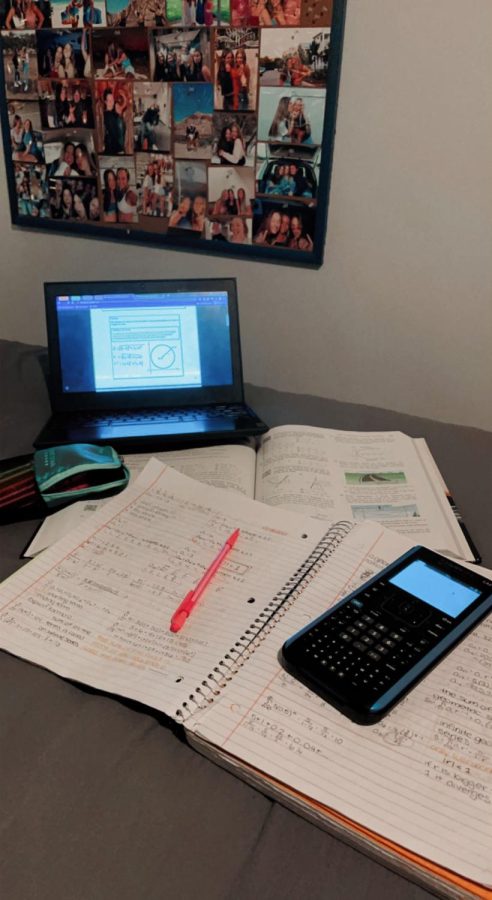How to be a studious student
Color coded notes are just one way to practice more effective studying.
November 12, 2021
As a student who strives to succeed in school, the quality of my work is more rewarding over the quantity. Although, I would rather finish an assignment on time, than understand it and turn it in late with a 50% dock in the assignment grade. Most students struggle with managing their time while studying due to the lack of a proper work ethic and mindset.
According to The University of St. Augustine, “it’s imperative to develop effective time management and study techniques that help you retain the most information. In grad school, cramming the night before does not cut it anymore. Go into the new year with a new strategy and try one of the study techniques below.” In this piece I will be assessing the proper techniques that The University of St. Augustine provides for an effective study recollection.
- Create a Proper Sleep Schedule. Focus on providing comfort to your bodily needs to satisfy your mental state and strategy so you can have a productive work session. Create and follow a sleep schedule, “A recent study found a positive relationship between students’ grades and how much sleep they’re getting.” Also stray away from studying late at night, forcing information into your brain is ineffective when you’re tired. Instead go to bed at a decent time and wake up when fully rested to then start the bulk of your studying.
- Listen to Calming Music. Lean towards classical and instrumental beats, it makes “good background music for studying and can actually help you pay attention to the task at hand.” Try to stay away from lyric associated music, songs with lyrics can be distracting. Instrumental music can also drain out background noises to enhance the engagement of your study session. Also, when listening to music make sure you aren’t constantly changing the song. Create a playlist of music you’re fond of so you don’t continuously check your phone then get distracted by social media or other apps and notifications. “Make a pact with yourself to avoid checking social media until your study session is over.”
- Create Personal Memory Retrieval Practices. “Retrieval practice is based on the concept of remembering at a later time. Recalling an answer to a question improves learning more than looking for the answer in your textbook.” Create flashcards that are useful to your section of learning. If provided by a teacher, use resources such as Quizlet. Quizlet provides many sources of memory practices such as flashcards, tests, and other memory retrieval induced games.
- Study Groups. If you’re struggling in a certain class, it is safe to assume that you are not the only one. Gather a group of classmates, struggling or not, to create a study group to assess confusing lessons or explain personal understandings for others to comprehend from another point of view rather than just the teacher.
- Spaced Practice. Instead of cramming a bulk of information into your brain before a test, space out your learning. An easy five to 10 minutes of your day spent on reviewing your class’ material can make a huge difference when it comes to test day. Make sure to revisit the material each day since it was taught up until the test, not only so it’s fresh in your head but also so you do not have to have any extra anxiety on being unsure of a topic.
- Color Coded Notes. Creating an organized vibrant space in your notes can increase your motivation to revisit and review the taught material. By color coding your notes, you can prioritize topics by relativity and importance on the need to know material to the side piece information. “A recent study found that color can improve a person’s memory performance. That same study found that warm colors (red and yellow) “can create a learning environment that is positive and motivating that can help learners not only to have a positive perception toward the content but also to engage and interact more with the learning materials.”
These strategies can not only be used for studying for tests but also for creating a deeper comprehension of your class’ material. Hopefully these help you advance in your learning and help calm your nerves when it comes to test day.









